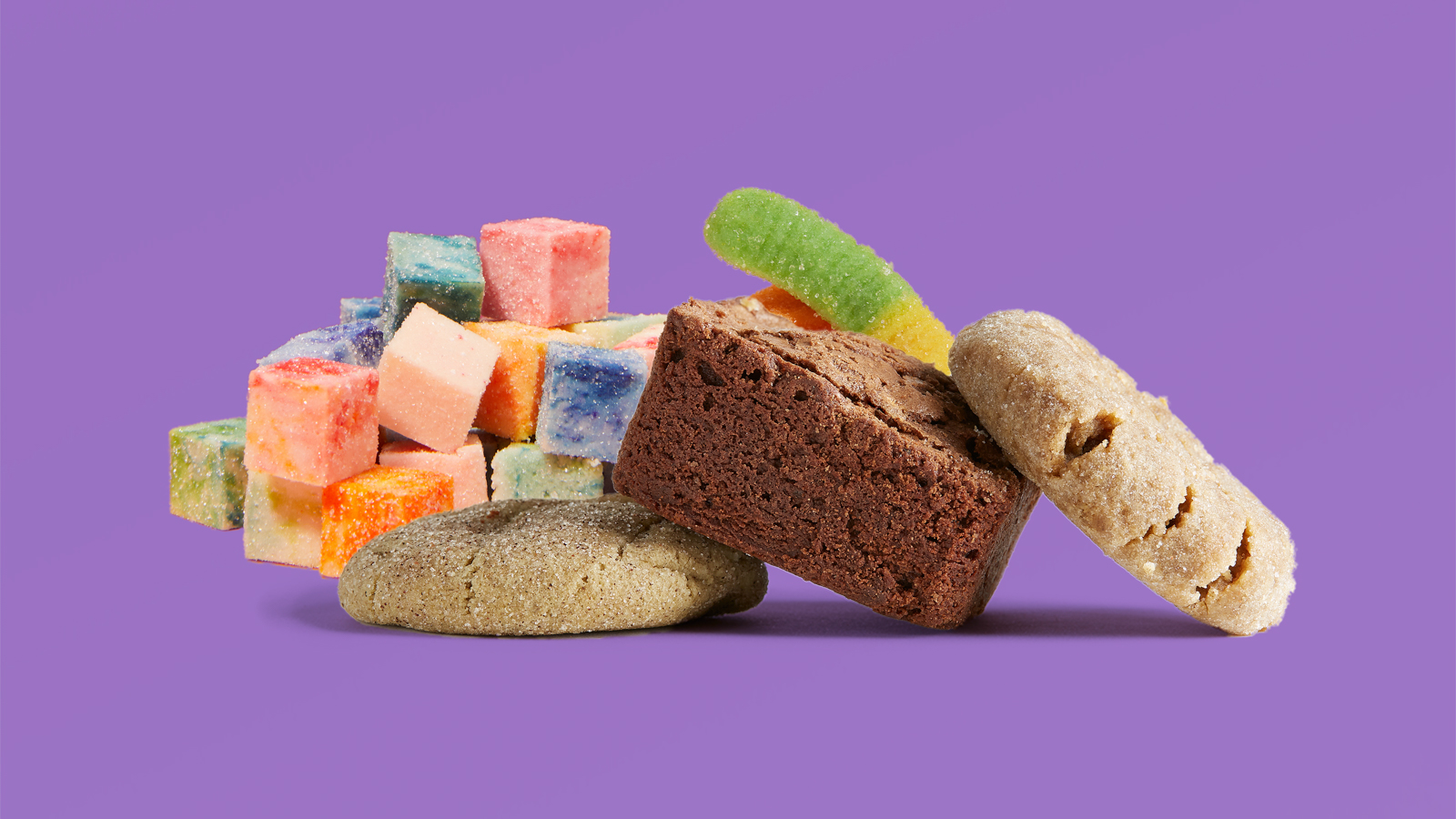THC is probably a familiar term to anyone who has enjoyed the psychoactive effects of cannabis, but 11-hydroxy-THC may be a new term to some. Here you'll learn what 11-hydroxy-THC is, how it works, and how to make sure you don't overindulge in this potent psychoactive compound.
What is 11-hydroxy-THC?
11-hydroxy-THC, sometimes written 11-OH-THC, is produced in the body when delta-9-THC, the one we usually think of as THC, is broken down. After delta-9-THC has been swallowed, the body breaks down and metabolizes it, producing the metabolite 11-hydroxy-THC. The metabolite is generally considered much more potent than its precursor.
Dr. Adie Rae, neuroscientist and scientific adviser to Weedmaps, explained, "The liver is responsible for this transformation, and specifically, the drug-metabolizing enzyme known as cytochrome P2C9 or CYP2C9. Even when you smoke, your liver still sees some delta-9 and turns it into 11-hydroxy-THC, but you get way more 11-OH when you eat cannabis."
First pass metabolism is the phenomenon that causes 11-OH-THC to exert such strong effects on the brain. Oral administration rather than inhalation leads to more potent and longer-lasting effects on the brain and body. In fact, 11-OH-THC can produce a more intense psychoactive experience than the cannabinoid THC.
The research on 11-hydroxy-THC
The available research on 11-hydroxy-THC demonstrates the metabolite's potency. For example, one study published in the Journal of Clinical Investigation found that 11-OH-THC is "much more potent at producing a subjective high and racing heart than delta-9," according to Dr. Rae.
In animal studies, 11-hydroxy-THC has been found to be more potent than delta-9-THC. One 2020 study on rodents published in the journal Progress in Neuropsychopharmacology & Biological Psychiatry found the potency of 11-hydroxy-THC to be somewhere between 1.5 and 7 times more potent than delta-9 in certain animals and tests.
Rae cited the reason for this much higher potency, saying, "It's partially attributable to the metabolite's higher binding affinity for the CB1 receptor which physically binds more tightly to the receptor than delta-9. Basically, the better it binds, the better it activates the receptor."
How does 11-hydroxy-THC work?
As Rae described, 11-hydroxy-THC primarily produces its effects by binding to the CB1 receptor and mimicking all the known effects of delta-9. The peak concentration of 11-hydroxy-THC in the blood is about one and a half hours after ingestion but, depending on the dose, it can linger for eight hours or more.
"This is great for medical patients because the long duration of the effects of 11-OH-THC may aid sedation and promote sleep," Rae said.
The sedative effect of 11-hydroxy-THC may not always be desirable, especially when consuming a cannabis edible in the middle of the day. Fortunately, there are ways to limit consumption of 11-hydroxy-THC to avoid any unwanted psychoactive effects.
How to avoid consuming too much 11-hydroxy-THC
Have you ever wondered why cannabis edibles hit you so hard? Dr. Rae explained that you basically feel a double dose of THC as your digestive system converts it into 11-hydroxy-THC. “This is why a lot of emergency department visits are associated with cannabis edibles, rather than inhaled consumption," Rae said.
In fact, a study at an urban hospital in Colorado illustrated the disproportionate problem with edibles. While edible sales made up only 0.32% of cannabis sales in the state at the time, they were responsible for about 11% of the cannabis-related ER visits.
To avoid over consuming 11-hydroxy-THC, go easy on the cannabis edibles and adjust recipes accordingly. If you're making cannabis-infused treats at home, try halving the amount of cannabutter in a recipe and substituting regular butter to lower the potency. Whether your edibles are homemade or store-bought, go slowly and start with a small serving to see how your body and digestive system react. Wait two to four hours before consuming more. Preparing cannabutter with low-THC strains may also be helpful in minimizing psychoactive effects, including anxiety.
If you find that your body is sensitive to the effects of 11-hydroxy-THC, you can try other methods of cannabis consumption. It is also wise to consult with your healthcare practitioner who can advise you on the best ways for you to consume cannabis. Further, your doctor can help you understand how your body might react to different levels of 11-OH-THC, as well as varying THC concentrations.
"Because 11-hydroxy-THC is made by the liver, and we all have different liver enzymes and genetic mutations in those enzymes, cannabis edibles can affect people very differently. There is a huge range in how individuals metabolize delta-9 into 11-hydroxy-THC, with age, sex, historical cannabis use, concurrent medications, and other factors contributing to variability," Dr. Rae concluded.

